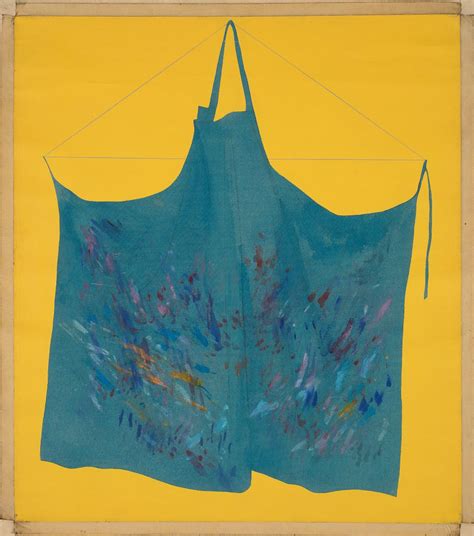Цитата Джайдип Ахлават
Я не думаю, что кто-то сможет ответить, почему их работа не удалась. Это просто часть жизни. Иногда твоя работа хороша, но персонаж не доходит до зрителя в полной мере.
Связанные цитаты
Я также думаю, что в наши дни сотрудники меньше ожидают разделения работы и личной жизни. Это не означает, что рабочие задачи должны занимать наше личное время, но это означает, что сегодня сотрудники ожидают большего от компаний, в которых они работают. Почему ваше рабочее место не должно отражать ваши ценности? Почему «отдача» не является частью нашей работы? Ответ для нас состоит в том, чтобы интегрировать благотворительность с работой.
Новичкам никто не говорит… что все мы, занимающиеся творчеством, занимаемся этим, потому что у нас хороший вкус. Но есть этот пробел. Первые пару лет ты делаешь что-то, и это не так уж хорошо. Он старается быть хорошим, у него есть потенциал, но это не так… ваш вкус — вот почему ваша работа вас разочаровывает… Мы знаем, что в нашей работе нет той особенной вещи, которую мы хотим, чтобы она была. Мы все проходим через это… Только проделав объем работы, вы закроете этот пробел, и ваша работа будет так же хороша, как и ваши амбиции.
Вы не можете просто думать, что получите работу без уважительной причины... И я думаю, что другая часть заключается в том, что вам нужно пробиваться вверх, вы знаете, я много копировал и пил кофе... Я всегда делал то, о чем меня просили. Я доставил. Люди знали, что я буду делать дела и делать их хорошо. И это большая часть нашего резюме, основанная на ответственности и готовности делать то, что необходимо.
я работаю на себя; для чего мне еще работать? Как можно работать на публику? Как вы думаете, чего хотела бы аудитория? Мне некого волновать, кроме самого себя, поэтому я всегда удивляюсь, если кому-то иногда нравится моя работа. Я полагаю, что мне, конечно, очень повезло, что я могу зарабатывать себе на жизнь чем-то, что действительно поглощает меня, чтобы попытаться сделать, если это то, что вы называете удачей.
Вы не понимаете полностью смысла произведения, пока на него не отреагирует публика. Потому что аудитория замыкает круг и добавляет совершенно другой оттенок смысла. Всякий раз, когда вы смотрите на что-то, а именно поэтому великие произведения искусства переживают десятилетия и столетия, это происходит потому, что внутри произведения есть дверь, которая позволяет зрителям пройти и завершить смысл произведения. Аудитория не пассивна и не глупа.
Роберт Де Ниро вдохновляет меня как молодого актера; даже в таком возрасте и при таком успехе нужно приходить на работу полностью подготовленным и готовым погрузиться в нее, неважно, как далеко ты продвинулся в своей карьере. И это то, что он сделал. Это был настоящий тревожный звонок для меня, потому что я знаю актеров, которые позволяют успеху вскружить им голову, а потом это сказывается на их работе.
Работа порождает работу. Просто работай. Если вы работаете, люди узнают о вас и захотят работать с вами, если вы хороши. Так что работайте везде, где только можно. Вот почему я изменил свое мнение об этих театрах, где люди работают бесплатно или должны платить деньги. Я думаю, это ужасно, что они чувствуют, что должны, но знаете что? Они работают.
Я всегда хочу, чтобы зрители каким-то образом идентифицировали себя с моим персонажем. Я имею в виду, что иногда вы получаете персонажей, которые не очень узнаваемы. Иногда вы вообще не можете относиться к своему персонажу. Я думаю, что важно поддерживать интерес аудитории. Но лучший совет, который я получил, — жить настоящим.



































